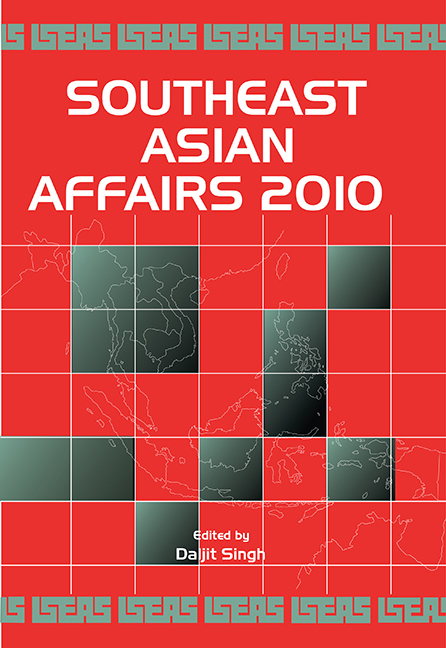Book contents
Laos: Crisis and Resource Contestation
from LAOS
Published online by Cambridge University Press: 21 October 2015
Summary
Laos in 2009 must be understood in terms of the broader context of ongoing crises that affected not only Laos, but also the region and indeed the globe. These include, primarily, the global financial crisis, the environmental crisis, and the food crisis, as well as Typhoon Ketsana and international outcry over the treatment of Hmong asylum seekers. While many of these critical situations have been developing for some time now, their cascading coalescence in 2009 gave this year a particular poignancy. They highlighted through stress and pressure not only Laos's deep engagements in regional and global dependencies, but also fractures and weaknesses in the Lao political, economic, and social setting. In particular, they highlighted the potentials but also dangers associated with resource exploitation. While resource exploitation is now Laos's main strategy for achieving development goals, the process is marked by unusually public conflict over associated rights and responsibilities. While this is unlikely to significantly undermine existing political arrangements, it is demonstrating the contradictions of political authority in contemporary Laos.
Resourcification
In recent years there has been a discursive shift towards describing Laos in terms of “resources”. In contemporary development reports and investment brochures, Laos is described as “resource rich”. The vision for development here is that abundant resources, in the form of mountains, waterways, and forested areas, will attract foreign direct investment, primarily in mining, agri-business, and hydroelectricity. There are, of course, attendant concerns, such as that Laos may fall victim to the “resource curse”, resources will be over-exploited, or the exploitation of one resource will compromise another. Nevertheless, these concerns, like the strategies that they critique, are framed within the language of resources. This language is not particularly new: interest in Laos as a source of raw materials was an aspect of the colonial endeavour, and recent radiocarbon dates suggest that copper-smelting and long-distance trade took place in Laos at least 2000 years ago (ongoing archaeological work may well push this back further into the Bronze Age). While the concept may not be radically new, it is ascendant in the current era and is particularly defining of contemporary understandings of Laos, both in terms of Laos's potentials and her vulnerabilities.
- Type
- Chapter
- Information
- Southeast Asian Affairs 2010 , pp. 153 - 162Publisher: ISEAS–Yusof Ishak InstitutePrint publication year: 2010



